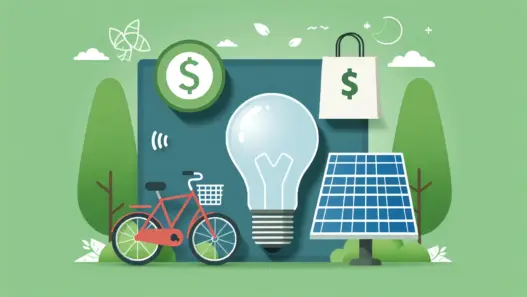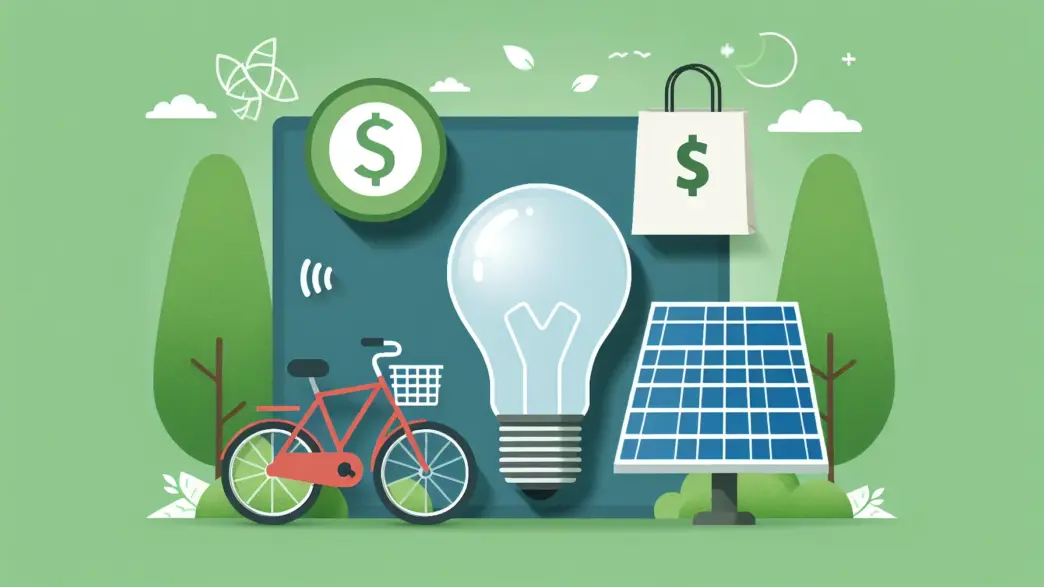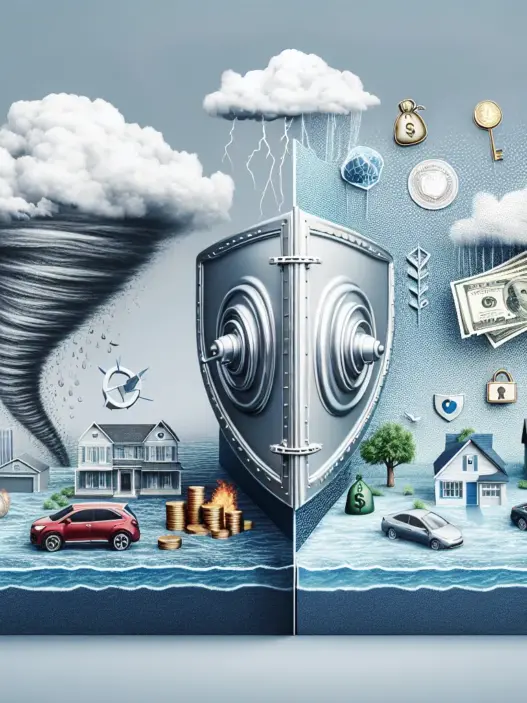Living sustainably doesn’t have to break the bank. In fact, many eco-friendly choices can actually help you save money in the long run. By making small changes in your daily life, you can reduce your environmental impact while also improving your financial situation. Let’s explore some practical ways to embrace sustainable living without straining your budget.
Energy-Efficient Home Improvements
One of the most effective ways to save money and reduce your carbon footprint is by making your home more energy-efficient. Start with simple changes like:
- Switching to LED light bulbs
- Installing a programmable thermostat
- Sealing air leaks around windows and doors
- Adding insulation to your attic
These upgrades may require an initial investment, but they’ll pay off in reduced energy bills over time. For example, LED bulbs use up to 75% less energy than traditional incandescent bulbs and last much longer, saving you money on both electricity and replacement costs.
Water Conservation
Reducing water usage is not only good for the environment but also for your wallet. Try these water-saving techniques:
- Fix leaky faucets and pipes
- Install low-flow showerheads and faucet aerators
- Collect rainwater for watering plants
- Use drought-resistant plants in your garden
By implementing these strategies, you can significantly lower your water bill. Additionally, if you’re considering major home improvements, you might want to explore ways to save money on home and auto insurance, which can free up more funds for eco-friendly upgrades.
Sustainable Transportation
Transportation is a significant source of both expenses and carbon emissions. Consider these budget-friendly, eco-conscious alternatives:
- Carpooling or using public transportation
- Biking or walking for short trips
- Maintaining your vehicle properly for better fuel efficiency
If you’re not ready to give up your car entirely, you can still make money using your car in eco-friendly ways, such as participating in rideshare programs or delivering goods for local businesses.
Reduce, Reuse, Recycle
The 3 R’s of sustainability can also help you save money:
- Reduce: Buy only what you need to minimize waste
- Reuse: Repurpose items instead of buying new ones
- Recycle: Properly sort recyclables to reduce landfill waste
By consuming less and reusing more, you’ll naturally spend less money on new items. For example, using reusable shopping bags, water bottles, and food containers can save you money on single-use plastics while reducing waste.
Sustainable Food Choices
Food choices have a significant impact on both your budget and the environment. Consider these sustainable options:
- Buy local, seasonal produce
- Start a small vegetable garden
- Reduce meat consumption
- Plan meals to minimize food waste
Eating more plant-based meals can be both cost-effective and environmentally friendly. If you’re looking for ways to save on groceries, check out these tips and tricks to save money on groceries every month.
DIY and Repair
Instead of replacing items when they break, try repairing them:
- Learn basic sewing to mend clothes
- Fix appliances using online tutorials
- Upcycle furniture instead of buying new
By extending the life of your possessions, you’ll save money and reduce waste. This approach aligns well with the principles of personal finance and budgeting, helping you make the most of your resources.
Energy-Saving Habits
Develop energy-saving habits that cost nothing but can lead to significant savings:
- Turn off lights and appliances when not in use
- Use natural light whenever possible
- Air-dry clothes instead of using a dryer
- Unplug electronics that aren’t in use
These simple actions can add up to substantial energy savings over time, reducing your utility bills without any upfront cost.
Sustainable Shopping
When you do need to make purchases, consider these eco-friendly shopping habits:
- Buy second-hand items when possible
- Choose products with minimal packaging
- Invest in durable, high-quality items that last longer
- Support eco-friendly businesses
By shopping mindfully, you can reduce waste and often save money in the long run. For more ideas on smart spending, take a look at these ways to spend your money wisely.
Community Involvement
Engaging with your community can lead to both environmental and financial benefits:
- Participate in local swap meets or clothing exchanges
- Join a community garden
- Volunteer for local environmental initiatives
These activities can help you save money on goods and services while also contributing to a more sustainable community.
Sustainable living and financial responsibility often go hand in hand. By making eco-friendly choices, you can reduce your environmental impact while also improving your financial health. Remember, small changes can lead to significant results over time. As you implement these sustainable practices, you’ll likely find that you’re not only helping the planet but also building a more stable financial future for yourself.
For more tips on managing your finances effectively, consider exploring strategies to help you emerge as a winner in a bear market. By combining sustainable living practices with smart financial planning, you can create a lifestyle that’s good for both your wallet and the world around you.
Frequently Asked Questions
How can sustainable living save me money?
Sustainable living can save money through reduced energy bills, lower water consumption, and decreased spending on disposable items. Energy-efficient home improvements, water conservation techniques, and adopting a reduce-reuse-recycle lifestyle all contribute to long-term savings while benefiting the environment.
What are some easy ways to start living sustainably on a budget?
Start with simple changes like switching to LED bulbs, fixing leaky faucets, using reusable shopping bags, and reducing meat consumption. These low-cost or no-cost actions can make a significant impact on both your budget and environmental footprint without requiring large investments.
Can sustainable transportation options really save money?
Yes, sustainable transportation can lead to substantial savings. Carpooling, using public transit, biking, or walking for short trips can reduce fuel costs, vehicle maintenance expenses, and potentially even allow you to eliminate car ownership costs altogether, resulting in significant financial benefits.
How does growing my own food contribute to sustainable living and saving money?
Growing your own food, even on a small scale, contributes to sustainability by reducing transportation emissions and packaging waste. It also saves money on groceries, especially for herbs and vegetables that are easy to grow. Additionally, homegrown produce often tastes better and is fresher than store-bought alternatives.
Are energy-efficient home improvements worth the initial investment?
Energy-efficient home improvements, such as installing LED bulbs, programmable thermostats, and proper insulation, are typically worth the initial investment. These upgrades pay for themselves over time through reduced energy bills, often providing a good return on investment while also decreasing your home’s carbon footprint.




















